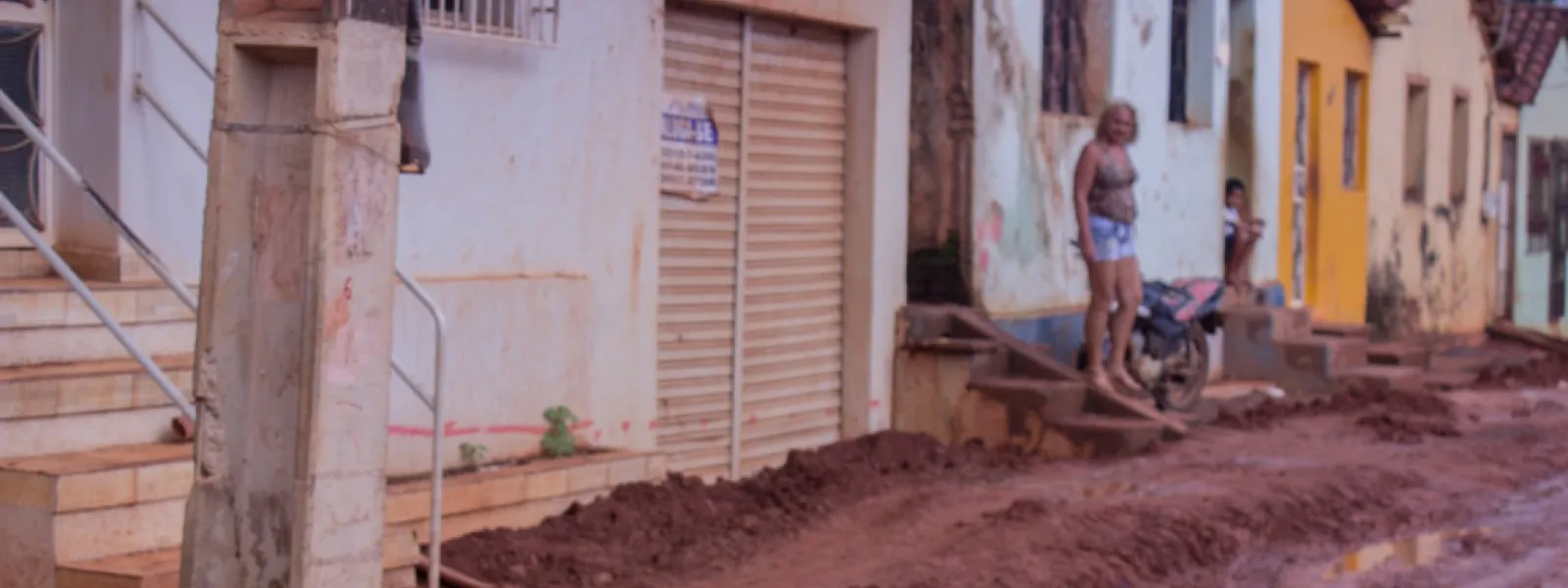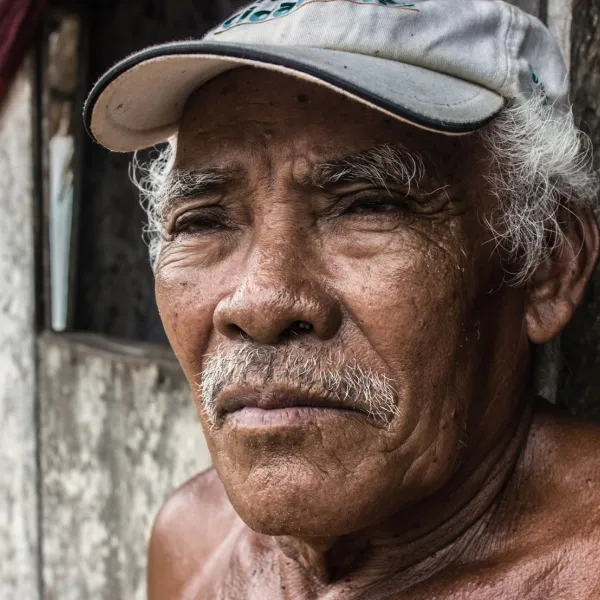
Project
Photo: Maíra Irigaray / Amazon WatchHolding Brazil accountable for the Belo Monte Dam
When fully operational, Belo Monte will be the third-largest dam in the world, constructed in one of the most important ecosystems on the planet: the Amazon rainforest. It sits on the Xingu River in Pará, a state in northern Brazil. The reservoir will cover 500 square kilometers of forest and farmland—an area the size of Chicago.
For the people of the Xingu, construction of Belo Monte has meant loss of access to water, food, housing, work and transportation. At least 20,000 people have been displaced.
The government and construction consortium began to construct the dam without first consulting the people of the region, many of whom are indigenous. They flouted international human rights law, which requires the free, prior and informed consent of affected indigenous communities. Brazil also failed to comply with precautionary measures issued by the Inter-American Human Rights Commission, which were intended to protect the life, health, and integrity of local communities.
Though Belo Monte began operations in May 2016, it is not yet operating at full capacity. In April 2016, a federal court suspended the dam's operating license because the consortium in charge did not complete basic sanitation works in Altamira, the city nearest to and most affected by the dam.
Partners:

Related projects
Latest News
Brazil secures Belo Monte site, but not human rights of affected people
Time doesn’t stop and, unfortunately, nor does the construction of the Belo Monte Dam. Work is advancing at an impressive rate on the Xingu River, in the Brazilian Amazon; 65% of the dam is complete. As it grows, the ecosystem—and the lives of people living in the area—deteriorates. Construction of the gigantic dam has opened an enormous gash through the thick Amazonian vegetation. Seeing it from the air creates a feeling of helplessness. And on land, it’s frustrating to see that the situation of indigenous peoples, coastal communities, and residents of the city of Altamira worsens. Recently, AIDA lawyers, María José Veramendi Villa and Alexandre Andrade Sampaio, visited the Arara indigenous community, nestled in the Big Bend of the Xingu River. Once Belo Monte dams the river, it will reduce the river’s flow so drastically that fishing, the livelihood of the Arara, will no longer be possible. Furthermore, the Arara will lose the track that leads to their sacred sites. They await the arrival of vehicles and construction of a road and a suitable well, because the quality of drinking water is not the best. In Altamira, the deteriorating situation is similar. Veramendi and Sampaio went there too. Once dam construction began, the population of the city grew massively. This boom has overwhelmed health services and the sanitation system and, worse, led to an increase in cases of sexual violence and human trafficking. Norte Energia, the consortium of government and private enterprises building the dam, has caused pisions among the affected population by paying more for some lands than for others. Many people were forced to sell their homes at a minimum price before they were evicted. And the small cinderblock cubes built for the relocation of displaced families do not qualify as adequate housing. Relocation also involves a change in lifestyle: from fishing to farming or hauling bags of cement. "This frays the social fabric,” explained Veramendi. “We work daily, along with our colleagues in Brazil, to make clear in the country and internationally that what is happening in Belo Monte constitutes human rights violations. We are constantly working to compel the government of Brazil to comply with the precautionary measures issued by the Inter-American Commission on Human Rights." On April 1, 2011, the Commission issued precautionary measures that Brazil should take to protect the life, health, and personal and cultural integrity of indigenous peoples in voluntary isolation; the health of other indigenous communities affected by the project; and demarcation of the ancestral lands of indigenous peoples. Our work, like the work of the human rights and environmental defenders we support in Brazil, is not easy. State security forces guard the construction site and Altamira. "We are surrounded, intimidated and harassed; there is no guarantee for our work," said Sampaio. With your help, we will continue fighting to see that the Belo Monte case progresses with the Commission, and that the Government of Brazil complies with its international human rights obligations rather than use the dam to bolster its electoral campaign at the cost of the environment and human welfare. Follow us on Twitter: @AIDAorg "Like" our page on Facebook: www.facebook.com/AIDAorg
Read moreOrganizations submit amicus curiae brief to Brazil’s Supreme Federal Court, demonstrating that Congressional authorization of the Belo Monte Dam is illegal
The authorization violates national and international law because the communities affected by the project were not consulted. Construction of the dam continues, causing harms to people, communities and the ecosystem of the Brazilian Amazon. Brasilia, Brazil. Construction of the Belo Monte Dam continues. Meanwhile, biodiversity and the communities of the area already suffer severe damage. Civil society organizations submitted to the Supreme Federal Court an amicus curiae (in Portuguese) (friend of the court) brief that demonstrates that the Congressional decree authorizing the controversial dam is illegal because the government didn’t consult with the affected communities. The brief contains national and international law arguments for the protection of the environment and human rights. The arguments support a legal action filed by the Federal Prosecutor’s Office (Ministério Público Federal), which seeks a Supreme Federal Court ruling that annuls the decree. The Interamerican Association for Environmental Defense (AIDA) prepared the document in cooperation with the Centro de Estudios de Derecho, Justicia y Sociedad (DEJUSTICIA), Instituto Socioambiental (ISA), la Associação Indígena Yudjá Mïratu da Volta Grande do Xingu (AYMÏX) and the Conselho Indigenista Missionário (CIMI). "The Belo Monte project was approved without the State having consulted and obtained the consent of the affected indigenous communities and traditional populations. This, alongside the environmental degradation that began with construction, has placed the individuals and communities in a situation of extreme vulnerability," explained AIDA’s attorney, María José Veramendi Villa. By not guaranteeing the right to free, prior and informed consent of the affected communities before authorizing the project, Congress violated the Brazilian Constitution and Convention 169 of the International Labor Organization (ILO). Even though public information meetings about the project were held, they did not constitute prior consultation because they were held after the project was approved. Additionally, information provided in the meetings was not translated into indigenous languages. Not all the affected people had access to the meetings and those who did received incomplete and last minute information about the project. As well as the issues related to free, prior and informed consultation and consent, the document reinforces the Federal Prosecutor’s arguments with regard to the right to access to justice. This right was violated when the government used a law known as Suspension of Security to suspend lower court decisions against the project and favorable to the affected population, ostensibly to protect public security and the economy. "If the Supreme Federal Court issues a favorable decision, the Brazilian State will have two obligations. Not only will it have to suspend the authorization it gave for the dam’s construction, but also it will have to remedy the past and ongoing harm inflicted on indigenous communities and other populations affected by Belo Monte," said Dejusticia’s international director, César Rodríguez Garavito. "Traditional populations affected by the dam are living in unacceptable conditions for democratic times. There is a judicial decision that recognizes that the right to prior consultation was violated, but at the same time another, preliminary and provisional, decision that authorizes construction to move forward," said Leonardo Amorim, an attorney with Instituto Socioambiental. "Consequently, this population suffers worsening health conditions and invasion of their lands. We hope that the Supreme Federal Court rejects this situation." This past Tuesday, the Xingu Alive Forever Movement (MXVPS), with the support of several organizations, requested a hearing (in Portuguese) with the President (Chief Justice) of the Supreme Federal Court to demand an immediate decision in this legal action, as well as in others that challenge large hydroelectric projects in the Amazon.
Read moreBelo Monte: Never say never!
By María José Veramendi Villa, senior attorney, AIDA, @MaJoVeramendi We won’t give up. This is AIDA’s motto for defending the rights of local Brazilians who face forced relocation as construction of the Belo Monte mega-dam moves forward in the Amazon. The Brazilian government is building the world’s third-largest dam on the Xingu River under the guise of meeting a growing demand for energy. One of the costs, according to official estimates, is the displacement of at least 20,000 people from indigenous and river communities. Their traditional lands will be flooded and their ways of life destroyed. But the people of the Xingu won’t be drowned quietly. They have organized to stand up for their rights. The government is so determined that it has hired spies to infiltrate the opposition movement. It has deployed public security forces to patrol the construction site and break up protests. And it plans to beef up controls in June and July, when global attention will focus on Brazil for the World Cup. Now Brazil’s government wants to criminalize protests against infrastructure projects, even if the affected communities are only voicing their dismay that they’ve been denied a basic constitutional and internationally recognized right to have a say in what happens. Throw in the towel? Not us. With your donations, AIDA is working to ensure that the people of the Xingu will be assured the right to be heard, to be consulted, and to live in a healthy environment. One focus of AIDA’s strategy is to tackle a legal instrument called Suspension of Security, which Brazil established during a military dictatorship. Higher courts have used it several times to “protect the public interest” by overruling lower courts, which, in the case of Belo Monte, have halted dam construction until the government consults and provides adequate protection and compensation for affected communities. At the sessions of the United Nations Human Rights Council in Geneva on March 10, AIDA’s attorney Alexandre Sampaio will explain how Brazil is using Suspension of Security to violate the human rights of Brazil’s indigenous peoples. Additionally, we are advocating, through the preparation and presentation of legal briefs, for the Supreme Court to reject Suspension of Security and determine that the project was illegal from the beginning. We have also asked the Inter-American Commission on Human Rights to analyze the human rights implications of Suspension of Security. AIDA provides all of its work free of charge to the people we help. Your donations through Global Giving provide the critical support that allows AIDA’s attorneys to pursue this challenging and important legal work, which empowers Amazon communities to defend their rights. Please consider making another gift in support of this work, helping in our “never-say-never” fight against Belo Monte. With great appreciation, The AIDA Team
Read more